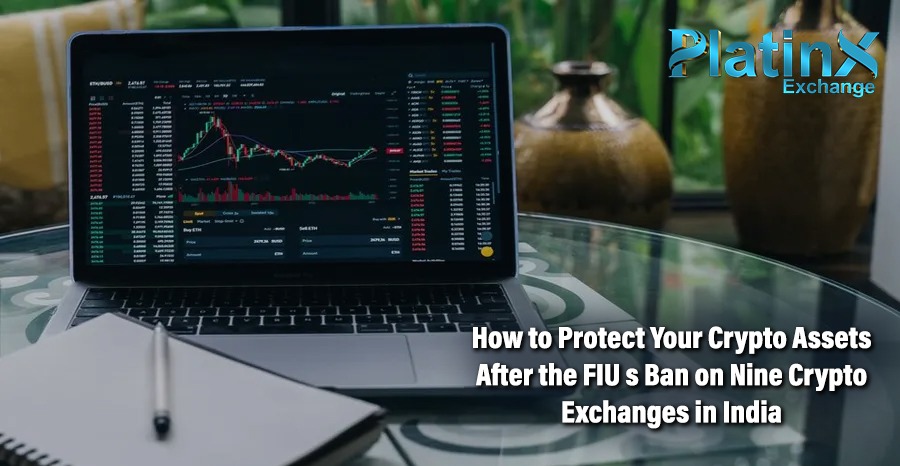If you are a crypto investor in India. You might have heard the shocking news that the FIU’s Ban on Nine Crypto Exchanges in India for violating the anti-money laundering law. The FIU (Finance Intelligence Unit), under the Indian Finance Ministry, sent a show cause notice to these exchanges on Dec. 28, 2023. It asked the Ministry of Electronics and Information Technology (MeitY) to block their URLs in India. This means that you will not be able to access these exchanges or withdraw your funds from them.
FIU’s Ban on Nine Crypto Exchanges in India
The nine crypto exchanges that have been banned by the FIU are Binance, Huobi, Kraken, Gate.io, Kucoin, Bitstamp, MEXC Global, Bittrex, and Bitfenex.
These are some of the most popular and widely used crypto exchanges in the world, and many Indian investors have accounts and funds on them. The FIU has accused them of operating illegally in India and not complying with the Prevention of Money Laundering Act (PMLA), 2002. The FIU has also alleged that these exchanges have facilitated money laundering, tax evasion, and other illicit activities using cryptocurrencies.
The FIU’s ban on these exchanges has created a lot of panic and confusion among crypto investors in India. Many of them are wondering what will happen to their crypto assets and how they can protect them from being seized or frozen by the authorities. If you are one of them, here are some steps given below, after the FIU’s ban on nine crypto exchanges in India:
Steps that you can take to safeguard your crypto assets
- Do not panic: The first and foremost thing that you should do is to stay calm and not panic. The FIU’s ban on these exchanges does not mean that your crypto assets are gone or worthless. They are still yours and you have the right to claim them. However, you will have to act fast and smart to avoid any further complications or losses.
- Check your balances and transactions: The next thing that you should do is check your balances and transactions on these exchanges. If you have any pending orders, cancel them as soon as possible. If you have any pending withdrawals, confirm them and make sure that they are processed. If you have any pending deposits, try to reverse them or contact the sender to cancel them. You should also take screenshots or download statements of your balances. These transactions are proof of your ownership and activity on these exchanges.
- Transfer your funds to a safe wallet: The most important thing that you should do is to transfer your funds from these exchanges to a safe and secure wallet. A wallet is a software or hardware device that stores and manages your crypto assets. You should choose a wallet that gives you full control over your private keys, which are the passwords that grant you access to your crypto assets.
Transfer your funds to an Indian crypto exchange platform
The last thing that you can do to protect your crypto assets after the FIU’s ban on nine crypto exchanges in India is to transfer your funds to an Indian crypto exchange platform that is registered and compliant with FIU India. This will allow you to continue trading and investing in cryptocurrencies in India, without any legal or regulatory risk. You will also be able to access the Indian crypto market and benefit from the local demand and supply.
Platinx Exchange
One of the Indian crypto exchange platforms that you can use is Platinx Exchange. Platinx Exchange is a leading and trusted crypto exchange platform in India. It offers a safe and secure platform for buying, selling, and storing cryptocurrencies. Platinx Exchange is registered and compliant with FIU India and follows the highest standards of KYC and AML policies. Platinx Exchange supports a wide range of crypto assets, including Bitcoin, Ethereum, Ripple, and many more. Platinx Exchange also offers low fees, high liquidity, fast transactions, and excellent customer support.
These are some of the ways that you can protect your crypto assets after the FIU’s Ban on Nine Crypto Exchanges in India.

